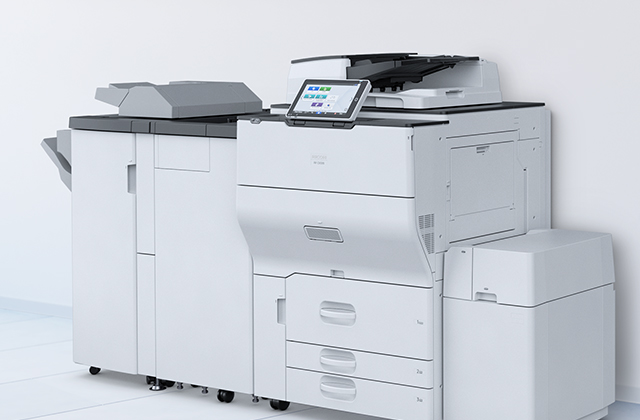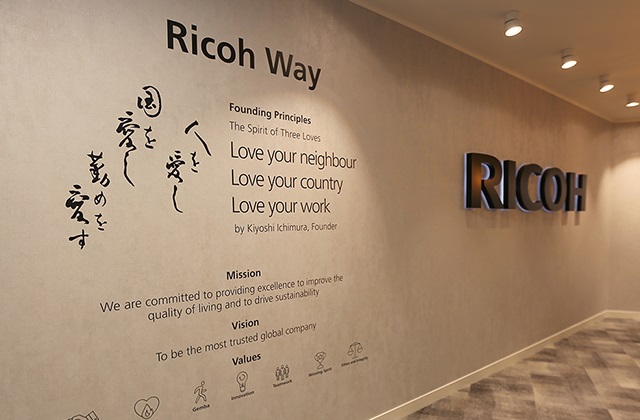Three ways personalised comms can secure consumer trust
By Javier Diez-Aguirre, Vice President, Corporate Marketing, CSR & Environment, Ricoh Europe
Ricoh Europe, 07 June 2017 – Famous American businessman Thomas J. Watson said “the toughest thing about the power of trust is that it's very difficult to build and very easy to destroy”1. This is especially true for brands in 2017.
Consumers see over 5,000 advertisements every day2. All that noise makes it difficult for brands to cut through and for consumers to know who to trust.
Trust and a sense of feeling valued are key factors impacting every brand’s bottom-line. 57% of consumers reported in Ricoh commissioned research that they spend more with brands that make them feel valued. 42% trust brands that personalise communications more than those that do not.
Whether a brand sells to consumers on the high-street or business decision makers there are three essential steps for developing trust through communications:
- Use data for detail - how is it possible to even start thinking about building trust unless you know exactly who you’re selling to? It’s not. Without insight into a customer’s individual behaviour, any attempt at personalisation will fall short, or even worse, appear fake. Start by connecting the dots between what your organisation already knows through the data it already has. Also, bear in mind that the best work happens when everyone pulls together. Making communications work well isn’t an issue that one part of the organisation can solve alone. All parts of the business must look for ways to organise, manage and utilise information to create targeted customer communications. Technology such as Customer Communication Management platforms, which deliver the right information to the right customer in the right format, goes a long way in adding that personal touch.
- Know when consumers value personalisation most - Nobody wants to feel bothered by a brand. 70% of consumers prefer brands to focus most on their needs during and after the purchase. With that in mind, targeting consumers with personalised discounts and offers post-purchase to bring them back in-store makes natural sense. Give consumers as little reason to look elsewhere in the future as possible by treating your relationships with them as a continuous journey. No simple one-time transactions here.
- It’s very good to talk - simple, two-way communication is crucial in building consumer trust. People like to speak with other people. If I know I’m speaking to a robot or what feels like shouting into an empty room, it’s incredibly frustrating. Brands must have that human touch to be seen as trustworthy. 41% of consumers choose to communicate with brands by email after making a purchase. Putting the processes and technology behind handling that well can yield profitable returns. Speed is also critical. 47% consider it to be a key determining factor for their future loyalty. Automated technology can prove vital in flagging and reacting to customer enquiries incredibly fast and consistently.
Fundamentally, each of these steps relies on some form of data collection and analysis. When it comes to customer communications, brands can be tempted to take a one-size-fits-all approach. But it’s the intelligent use of customer data to transform communications which can help build long term customer loyalty and trust.
However, the consumers we spoke with made it very clear that brands must be careful to strike a sense of balance. 89% would drop out of the buying process if they felt a brand was too intrusive. Imagine losing 9-in-10 potential customers as a result of being too over-bearing!
Clarity and transparency are integral for securing repeat custom and building trust. How a business collates, manages and uses data has never been so important – especially in a competitive digital-first world.
For more information, visit www.ricoh-europe.com/thoughtleadership
1 Wise Old Sayings and Quotes: Introduction, 2017
2 Will This App Disrupt The $160 Billion Ad Industry By Replacing Ads With Positive Messages?, Forbes 2016
| About Ricoh |
Ricoh is empowering digital workplaces using innovative technologies and services that enable individuals to work smarter from anywhere.
With cultivated knowledge and organizational capabilities nurtured over its 85-year history, Ricoh is a leading provider of digital services, information management, and print and imaging solutions designed to support digital transformation and optimize business performance.
Headquartered in Tokyo, Ricoh Group has major operations throughout the world and its products and services now reach customers in approximately 200 countries and regions. In the financial year ended March 2022, Ricoh Group had worldwide sales of 1,758 billion yen (approx. 14.5 billion USD).
For further information, please visit www.ricoh-europe.com
© 2023 RICOH COMPANY, LTD. All rights reserved. All referenced product names are the trademarks of their respective companies.
For further information, please contact:
Ricoh Europe PLC
Charlotte Fernandez
E-mail: media@ricoh-europe.com
Homepage: www.ricoh-europe.com
Join us on Facebook: www.facebook.com/ricoheurope
Follow us on Twitter: www.twitter.com/ricoheurope
Follow us on LinkedIn: http://linkedin.com/company/ricoh-europe
Visit the Ricoh media centre at: www.ricoh-europe.com/press














